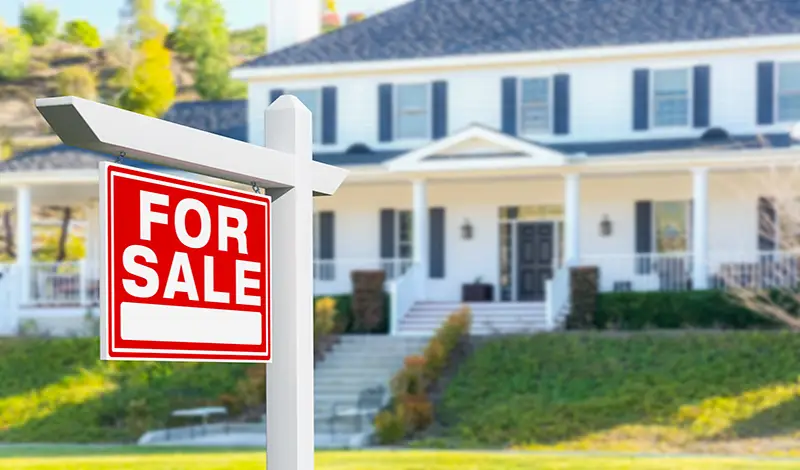How Long Should a House Stay on the Market?
Published on February 5, 2024 | 4 Minute read

Melanie
Ortiz Reyes
Content Specialist
In the ever-evolving realm of real estate, one common question that homeowners, sellers, and real estate professionals grapple with is, "How long should a house stay on the market?" Truth is, the duration a property spends on the market can significantly impact its perceived value, buyer interest, and overall success in the selling process.

Factors Influencing Time on the Market
1. Location and Market Conditions
The impact of location and market conditions cannot be overstated. In a seller's market, characterized by high demand and low inventory, homes tend to sell more swiftly. Conversely, a buyer's market may require a more patient approach. Understanding the specific dynamics of the local real estate market is essential in gauging the ideal time frame.
2. Property Type and Features
The uniqueness and features of a property can significantly influence the time on the market. Larger or distinctive properties may take longer to find the right buyer, while well-maintained, move-in-ready homes are likely to attract quicker attention. Recognizing the distinctive qualities of a property and tailoring the marketing strategy accordingly can streamline the selling process.
3. Pricing Strategy
The pricing strategy is a pivotal factor in determining how long a house stays on the market. Overpricing can lead to prolonged market exposure, while a competitive initial price attracts early interest. Regular market assessments and strategic adjustments based on buyer feedback ensure the pricing aligns with current market conditions, optimizing the chances of a timely sale.
4. Property Presentation
Visual appeal plays a crucial role in the selling process. Homes with strong curb appeal and well-staged interiors capture the attention of potential buyers more effectively, potentially reducing the time on the market. Investing in professional staging and enhancing the property's overall presentation can create a lasting first impression.
5. Marketing and Exposure
The effectiveness of the marketing strategy and the exposure a property receives are paramount. Leveraging online platforms, professional photography, virtual tours, and social media promotion can significantly enhance visibility and attract a broader audience. A comprehensive marketing campaign tailored to the property's unique attributes is instrumental in expediting the selling process.

Strategies to Optimize Time on the Market
1. Accurate Pricing
Accurate pricing is the cornerstone of a successful selling strategy. Conducting a thorough market analysis, considering comparable sales, and aligning the price with current market conditions ensure that the property is competitively priced. A well-calibrated pricing strategy increases the likelihood of attracting potential buyers promptly.
2. Effective Marketing Campaigns
Implementing a robust marketing plan is crucial for a timely sale. This includes creating compelling online listings, utilizing professional photography, incorporating virtual tours, and harnessing the power of social media. An expansive and targeted marketing campaign maximizes exposure, engaging potential buyers and shortening the time a house spends on the market.
3. Home Staging
Home staging goes beyond aesthetics; it's about creating an emotional connection with potential buyers. Professionally staged homes not only showcase the property's potential but also help potential buyers envision themselves living in the space. Investing in home staging is an impactful strategy to reduce the time a house stays on the market.
4. Regular Market Evaluations
Market dynamics are subject to change, and a proactive approach involves regular evaluations of market feedback. Regularly reviewing buyer responses, gauging the property's performance against comparable listings, and adjusting the marketing strategy or pricing as needed demonstrates adaptability and responsiveness, key elements in optimizing time on the market.
5. Professional Real Estate Guidance
Partnering with a seasoned real estate professional is a strategic move. An experienced agent not only understands the local market intricacies but also brings valuable insights and negotiation skills to the table. Their guidance ensures that every decision aligns with current market dynamics, increasing the efficiency of the selling process.
While there's no one-size-fits-all answer to how long a house should stay on the market, a combination of strategic factors, market awareness, and proactive measures can significantly influence the selling timeline. By understanding the nuances of the local real estate landscape and implementing effective strategies, homeowners can enhance their property's market appeal and increase the likelihood of a timely and successful sale. The key lies in adaptability, informed decision-making, and a commitment to optimizing every aspect of the selling journey.